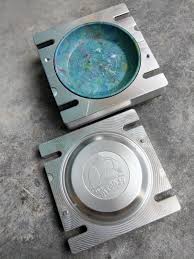The Role of Injection Mold Machines in Recycling Plastic Waste: Challenges, Innovations, and Opportunities
Plastic pollution has become one of the most pressing environmental issues of our time. As we continue to generate vast amounts of plastic waste, finding sustainable ways to recycle it has never been more important. One of the promising technologies in this fight is the use of injection mold machines, which are increasingly being employed in the recycling of plastic waste. These machines offer a scalable and efficient way to transform discarded plastics into useful products, helping to reduce plastic waste and promote a circular economy.
What is an Injection Mold Machine?
An injection mold machine is a device used in the manufacturing of plastic products. It works by injecting molten plastic material into a mold, where it cools and solidifies into a desired shape. This process is fast, versatile, and capable of producing high-precision parts, making it ideal for mass production. When adapted for recycling, injection molding machines can take post-consumer plastic waste and turn it into new products, significantly reducing the need for virgin plastic.
How Injection Mold Machines Are Used in Plastic Recycling
The recycling process using injection mold machines starts with collecting and sorting plastic waste. After the waste is cleaned and shredded into small pellets or flakes, it is melted down and fed into the injection mold machine. The molten plastic is then injected into a mold, where it cools and solidifies, resulting in new products.
The flexibility of injection molding allows for a wide variety of products to be made from recycled plastic. These can range from everyday household items to more complex industrial components. Examples of products made from recycled plastic include furniture, automotive parts, packaging, and even fashion accessories. By utilizing injection mold machines, companies can produce high-volume, low-cost items while also contributing to environmental sustainability.
Recently small-scale plastic recyclers using injection mold machine have started implementing 3D printed molds, you can learn more about how 3D printed molds are used here!
The Precious Plastic Community’s Role
A notable example of the innovative use of injection mold machines in recycling comes from the Precious Plastic community. Precious Plastic is a global network of makers, designers, and engineers dedicated to recycling plastic waste on a community scale using open-source machines. They have developed simple, affordable injection molding machines that can be built and operated by anyone, from individuals in their homes to small-scale entrepreneurs.
The Precious Plastic community is empowering people to transform plastic waste into valuable products locally, bypassing the need for large-scale industrial systems. Members of the community use injection mold machines to create everything from stylish jewelry to functional tools. This grassroots movement demonstrates the power of small-scale recycling and how injection mold machines can be adapted to meet diverse needs. If you want to learn more about Precious Plastic click here!
Challenges in Using Injection Mold Machines for Recycling
While injection mold machines hold significant promise, there are several challenges to their widespread adoption in plastic recycling. One of the primary issues is the quality of recycled plastic. Many plastics are made from multiple types of polymer blends, which can complicate the recycling process, and the different types of plastic can not be recycled together. Contaminants in the waste stream can also affect the quality of the final product, so the plastic must be cleaned thoroughly before being melted down. Additionally, the infrastructure for recycling at a global scale remains underdeveloped in many regions.
Another challenge is the economic viability. Recycling plastic through injection molding can be more expensive than producing new plastic from petroleum-based sources, especially when taking into account the energy needed to melt the plastic. However, advances in technology and a growing focus on sustainable manufacturing are slowly making recycled plastic products more competitive.
Conclusion
Injection mold machines are proving to be an essential tool in the battle against plastic waste. By transforming discarded plastics into valuable products, they help promote a circular economy and reduce the environmental impact of plastic production. Communities like Precious Plastic are making this technology accessible to everyone, driving innovation at a grassroots level. While challenges remain, the potential of injection molding in recycling plastic waste is vast, offering hope for a more sustainable future.

